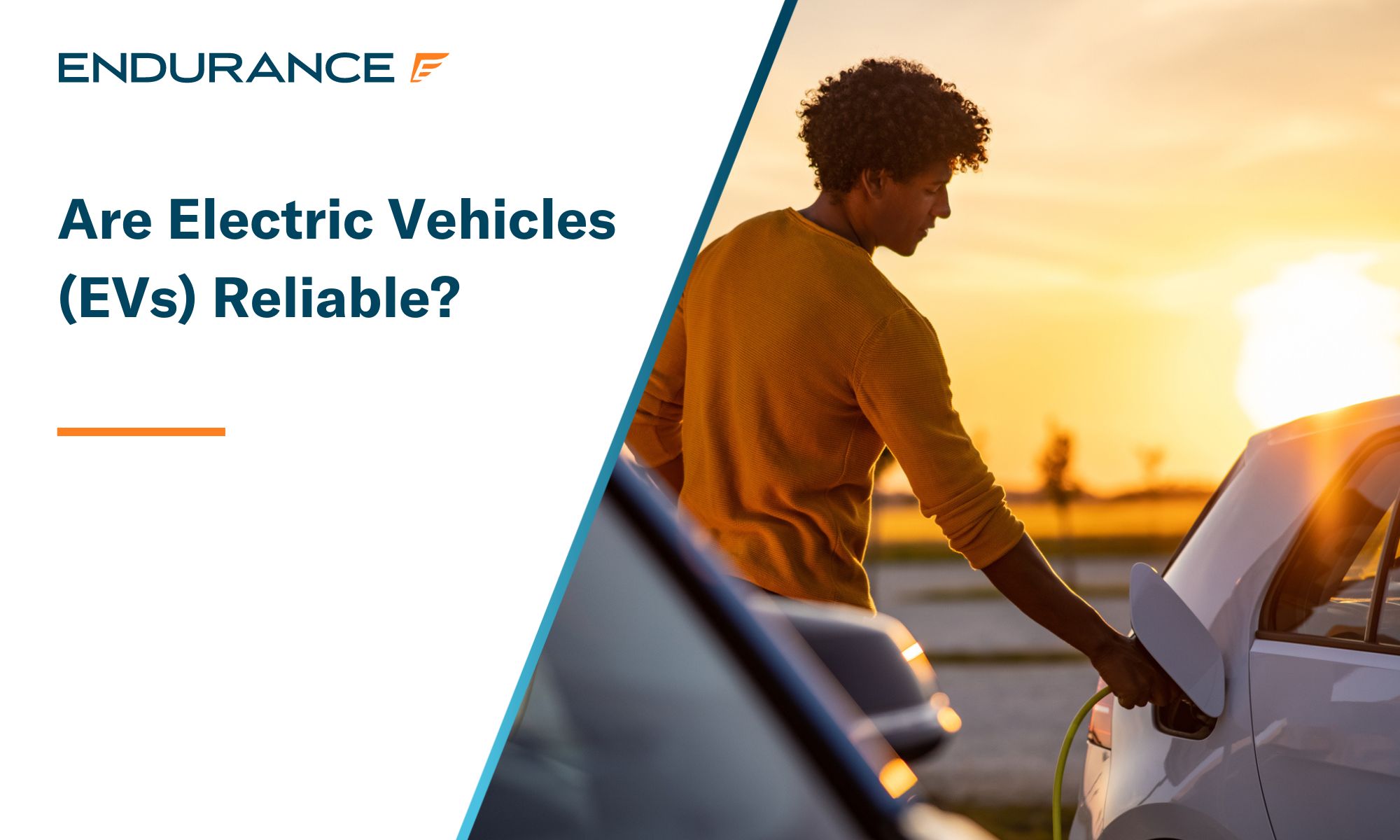Are Electric Vehicles Reliable?

As the world shifts towards more sustainable modes of transport, electric vehicles (EVs) have emerged as a popular option. However, as with any new technology, concerns about their reliability have been raised. Are EVs really as reliable as traditional gas or diesel vehicles? What about hybrids? Let’s delve deeper into this question and explore various factors contributing to EV overall reliability.
Hybrids vs. Fully Electric Vehicles
Hybrid vehicles and fully electric vehicles are two different types of eco-friendly vehicles that have gained popularity in recent times. The basic difference between the two lies in their source of power. Hybrid vehicles derive their power from two sources, namely gasoline and electric power, while fully electric vehicles derive their power solely from an electric motor. Hybrid vehicles use both sources interchangeably, while electric vehicles only rely on electric power. Although both vehicles are environmentally friendly, they have unique advantages and disadvantages.
Hybrid vehicles are comparatively cheaper and more readily available than fully electric vehicles. They require a much smaller battery pack, which reduces the overall cost of the vehicle. Hybrid vehicles still rely on gasoline for power, which means they have a longer range and do not require frequent charging. This makes them ideal for long-distance travel. However, since hybrid vehicles use gasoline, they produce emissions and may not be as eco-friendly as fully electric vehicles.
On the other hand, fully electric vehicles are more eco-friendly as they produce zero emissions. They are also more efficient and leave a smaller carbon footprint than hybrid vehicles. However, they are more expensive than hybrid vehicles, and the battery takes longer to charge, which means they may not be suitable for long-distance travel. Nonetheless, advancements in battery technology are addressing this issue, and the gap in the range between hybrid and fully electric vehicles is narrowing rapidly.
About Electric Car Manufacturers
Electric cars have become increasingly popular among consumers around the world due to their environmentally friendly nature and energy efficiency. With the rise in demand for electric cars, manufacturers are stepping up to create the best electric vehicles on the market. One of the most notable electric car manufacturers is Tesla.
Founded in 2003, Tesla has been a leader in the electric car industry with its sleek and powerful electric cars. The company’s flagship model, the Tesla Model 3, is an all-electric sedan boasting top-of-the-line features such as a long-range battery, autopilot capabilities, and a flashy touchscreen display.
Since its inception, Tesla has continued to innovate in the field of electric vehicles and aims to make electric cars accessible to the mass market. With its groundbreaking technology and widespread infrastructure, Tesla has set the bar for electric car manufacturers and continues to dominate the market today. You can even opt for higher-performing Tesla EVs such as the Model X or Model Y.
As EV technology advances and the demand for electric vehicles grows, more automakers are offering their own electric vehicles with powerful and reliable powertrains. Companies such as Kia, Toyota, Ford, Chevrolet, and Nissan have been at the forefront of the EV vehicle movement. The Nissan Leaf, a popular EV vehicle, has gained notoriety as being Nissan’s flagship EV that is affordable for most budgets. BMW has also doubled down on the EV market, providing consumers with a full line of electric vehicles to choose from.
Types of EV Technology
Electric vehicle technology is constantly advancing, and numerous types of electric vehicles (EVs) are currently available in the market. The two most common types of EVs are Battery Electric Vehicles (BEVs) and Plug-in Hybrid Electric Vehicles (PHEVs). BEVs are 100% electric vehicles that rely solely on battery power to travel, while PHEVs have both a battery pack and an internal combustion engine (ICE) that can recharge the battery pack. BEVs are becoming increasingly popular because of their reduced emissions when compared to gas vehicles, and they are great for shorter trips around town. PHEVs, on the other hand, offer more extended driving distances and are ideal for those who often take long trips.
Another type of EV is hydrogen fuel cell electric vehicles (FCEVs), which use a fuel cell to convert hydrogen into electricity to power an electric motor. These vehicles have no emissions and only produce water as a byproduct. They offer similar benefits to BEVs, including quieter operation, reduced CO2 emissions, and lower operating costs. Unfortunately, there are limited hydrogen fueling stations, which makes FCEVs less accessible than BEVs.
Self-driving cars, also known as autonomous vehicles, are an emerging technology that has the potential to revolutionize the way we travel. These vehicles have the ability to sense their environment, navigate through streets and highways, and safely transport passengers to their destination without the need for human intervention.
The benefits of self-driving cars are numerous, including increased safety on the roads, reduced traffic congestion, and improved accessibility for individuals with disabilities or limited mobility. Additionally, these vehicles have the potential to significantly reduce carbon emissions and improve air quality, as they can be programmed to drive more efficiently and smoothly than humans. Some challenges remain to be addressed, including regulatory and legal issues, automation or self-driving reliability issues, cybersecurity concerns, and public trust in the technology.
However, self-driving cars are increasingly being tested and deployed on roads around the world, and it is only a matter of time before they become a common feature in our daily lives.
Are Electric Cars Reliable?
Electric vehicles are often touted as more reliable than gas-powered cars due to their simpler drivetrain and fewer moving parts. Additionally, EVs have lower maintenance costs since they don’t require oil changes or other routine maintenance associated with traditional gasoline engines.
However, EVs can still experience mechanical issues, and the availability and cost of replacement parts can be a concern for some models. In addition, recent surveys and predictions have shown that electric vehicles are not yet more reliable than traditional gas cars or hybrid options. Electric vehicles may have less wear and tear and fewer opportunities for mechanical failures, but EV owners have reported charging, battery, and electric motor issues, among other problems. Therefore, electric vehicle manufacturers still have a long way to go.
Protect Your Hybrid With Coverage From Endurance
Protect yourself and your wallet from expensive out-of-pocket repairs with a vehicle service contract from Endurance. We offer superior protection for hybrid vehicles, giving you factory warranty-like coverage. Endurance auto protection plan owners can enjoy standard benefits like 24/7 roadside assistance, towing and lockout services, trip interruption coverage, and more.
All new Endurance customers also receive one year of Elite Benefits free when purchasing any of our protection plans. These Elite perks include two tire repairs or replacements per year, key fob replacement, up $1,000 in total loss protection, and more. A small activation fee applies.
Purchase an Endurance vehicle protection plan by calling (800) 253-8203 or shop online for customized coverage. You can also visit our Endurance blog for more articles on vehicle buyer guides, extended warranty comparisons, expert auto tips, FAQs, and more.













Since the age of 16, Keith has been immersed in the automotive industry, beginning his career by helping his dad fix vehicles at a young age. Keith now owns his own family-run, ASE Certified repair shop, A+ Autocare. At his shop, he focuses on building trusting relationships with his community through exceptional customer service. Read more about Keith.